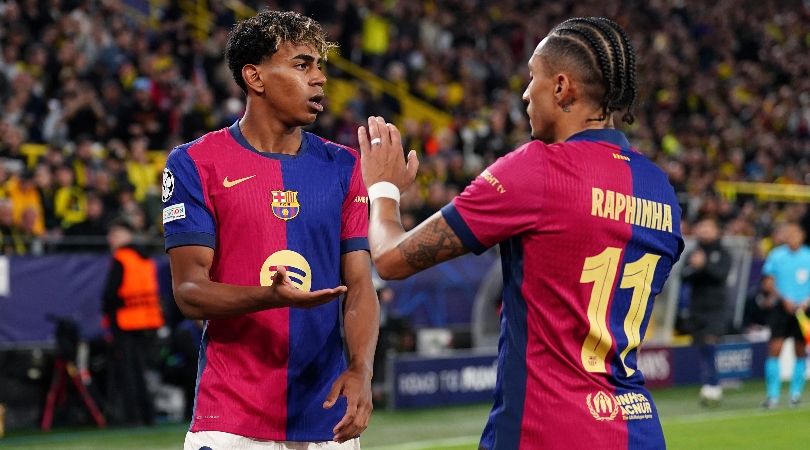Better luck next time? A history of post-tournament England inquests
England are back, and therefore so are the hollering headlines. Richard Edwards studies the back pages' back pages...
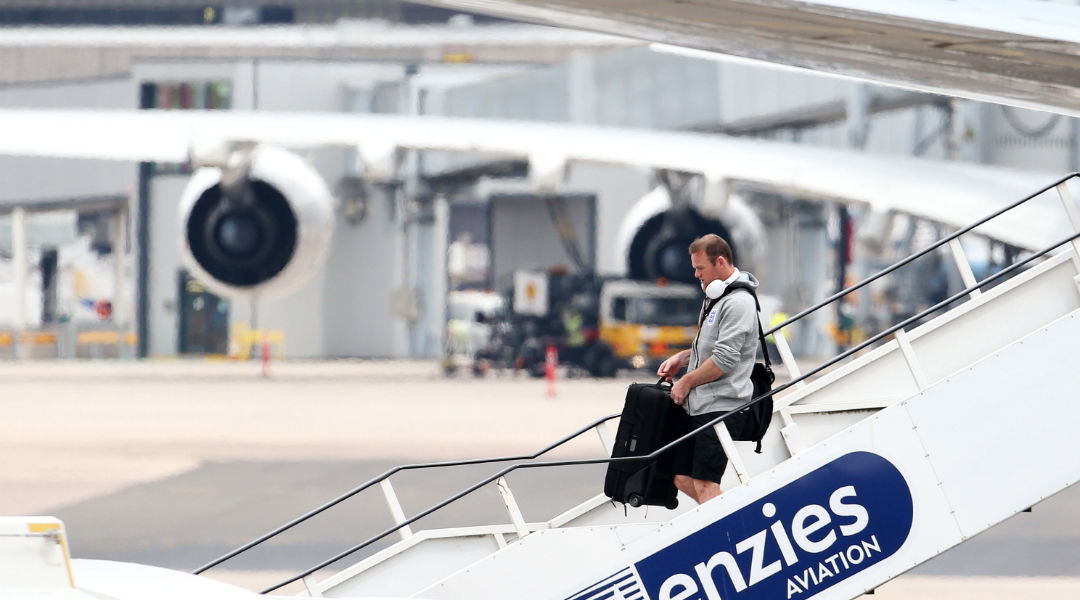
You can almost set your four-yearly clock by it – when the BBC's Chris Waddle comes off his long run you know that England’s World Cup dream is over and it's time for the inquest into another series of dismal performances on the global stage.

Tuesday night was classic Waddle, although even the Crown Prince of Marseilles struggled to work up the kind of enthusiasm he generated in South Africa after England’s humiliation at the hands of Germany in Bloemfontein.
Then, the red-faced, mouth-frothing former wing wizard lambasted the FA with a verbal vuvuzela to remember.
“The FA just sit on their backsides… tournament after tournament. Why don’t they listen? Why don’t they look at other countries and say 'How do they keep producing talent?'? We coach talent out of players. Where do we go? Where’s our plan B? We haven’t go one,” he said after Joachim Loew’s German side had pulled down the pants of the English and given them a thorough Teutonic spanking.
Get FourFourTwo Newsletter
The best features, fun and footballing quizzes, straight to your inbox every week.
It says much for the current state of the national team that all most could muster after Luis Suarez’s winner in Sao Paulo was a collective sigh of resignation in recognition that all those ‘realistic pre-tournament expectations’ were exactly that.
Waddle still has the appetite (just) for an inquest into what went wrong in Brazil, but history shows that whatever happens in the coming months is unlikely to make a blind bit of difference when England travel home early from Russia in four years' time – providing they make it there in the first place.
Anonymous strangers
‘Down and Out’ screamed the Daily Telegraph after Germany’s win four years ago. Most depressing, though, was the fact that Henry Winter would have been able to cut and paste the majority of his prose into his England-Uruguay match report four years later.
“Capello’s defence were a collection of hesitant strangers, his midfield painfully less than the sum of their celebrated parts and the attack anonymous,” he wrote.
The uproar after that defeat was huge, but a decent start to the country’s Euro 2012 qualifying campaign – a 4-0 home win against Bulgaria coupled with a 3-1 win away in Switzerland – took the heat off Capello and eased English football back into its comfort zone.
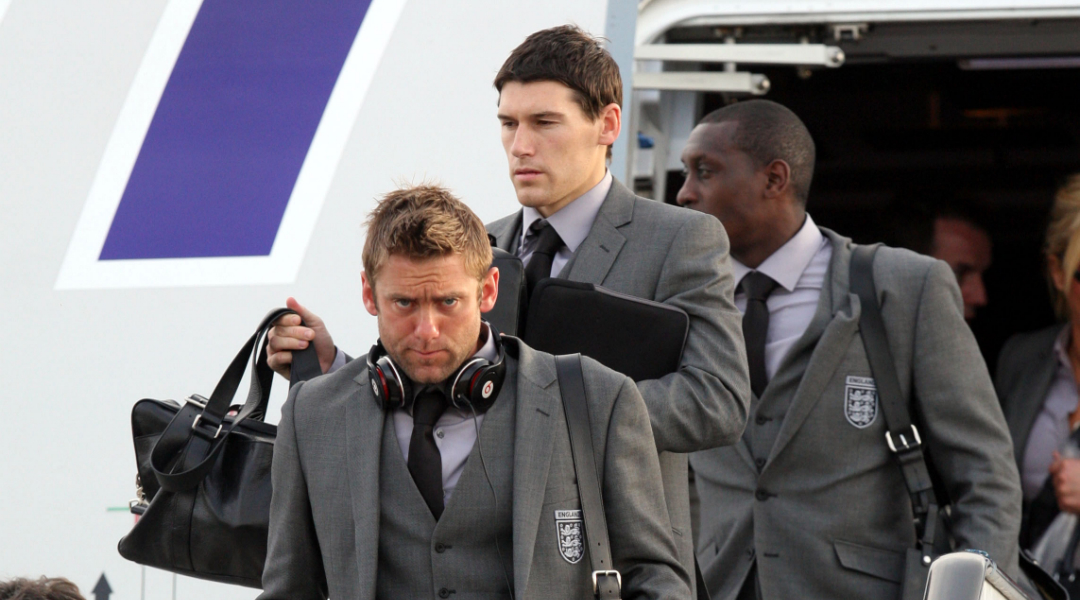
If England were dull in 2010, they were also dismal at the 2006 tournament in Germany, although reaching a quarter-final at the current time would probably be a valid excuse for a street party, a national holiday and 23 knighthoods.
Hell, a defeat on penalties to Portugal and a winking Ronaldo even gave us a couple of classic excuses to cling to. The nation’s media, though, were unconvinced by Sven-Goran Eriksson’s final hurrah as England boss and even less impressed by the disgraced Wayne Rooney.
While Brian Barwick, the then head of the FA, celebrated the fact that “It was a weekend when Argentina and Brazil beat us to the airport”, Martin Samuel, then of The Times, did a passable impersonation of Waddle in belittling the attitude of the governing body.
“The fixture list decreed the order of departure, not ability,” he wrote, with more growl than grammar. “There is no kudos or credit for England in staying 24 hours later than Argentina. It was simply the luck of the draw. If this is the level of examination applied at Soho Square to England’s most disappointing World Cup performance in 56 years, is it any wonder the last eight remained the limit for the golden generation?”
Next time, definitely
If they were Samuel’s thoughts eight years ago it’s probably wise for Hodgson and his team to avoid the Daily Mail on their flight back to Luton, but the frustration was understandable given that four years earlier England had actually turned up at a World Cup and made a positive impression.
In the afterglow of THAT night in Munich, Sven’s England left Japan and Korea having beaten Argentina and won a knockout match in 90 minutes for the first time since 1986. Little wonder the press were cock-a-hoop.
“FOUR MORE YEARS OF HURT, THEN THIS WILL BE OURS” was the headline in the Daily Star as they reported on David Beckham’s pledge to bring the trophy home in 2006. Brian Woolnough, though, wasn’t entirely convinced: “What Eriksson must do is rid the nation of a feeling of being grateful just to reach the quarter-finals,” he wrote.
The Daily Express, meanwhile, ran a front-page report of how Sven’s side were guaranteed a ‘Royal Welcome’ on their return home from the Far East as a result of a campaign which “had left the nation bursting with pride”.
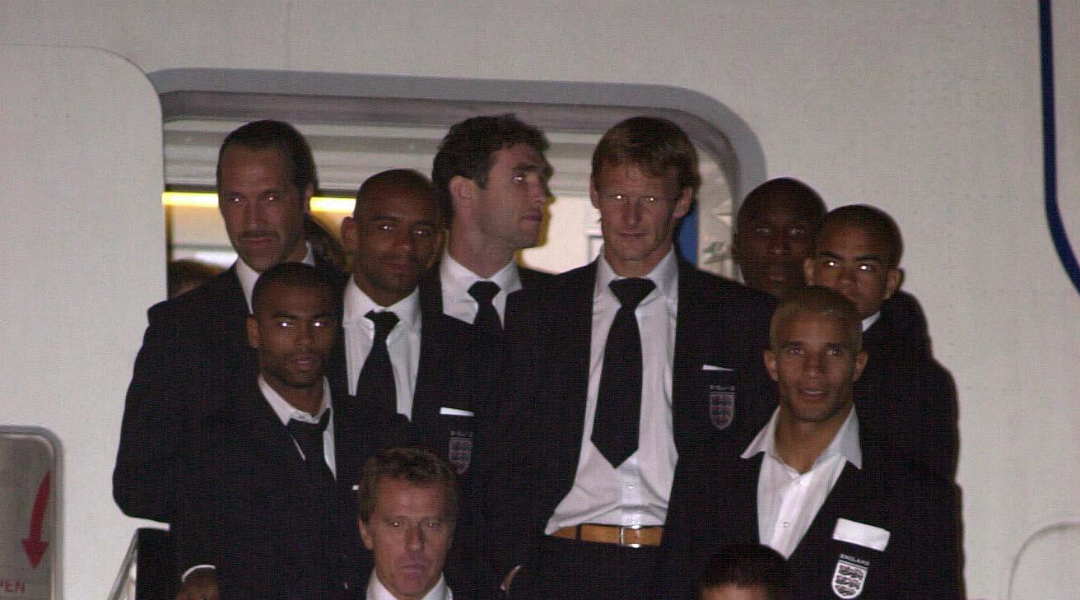
That reaction was in sharp contrast to the effigies of David Beckham that were being burnt in some of the less-enlightened areas of this great nation of ours, following his sending off for kicking out at the charming Diego Simeone at France 98.
The blame for England’s second-round exit was laid squarely at the Beckham’s door but the general mood of the nation, despite failing to reach the last eight of the competition for the first time since 1958, was surprisingly upbeat.
“HEROIC IN DEFEAT – But can we have a win next time, please?” ran the leader column in The Times. The same column later claimed that Michael Owen could go on to “mature into another Pele”, while singing the praises of manager Glenn Hoddle and calling for clemency in the case of Beckham.
Shattered dreams
Rewind eight years to England's previous World Cup finals appearance, and a similar mood of forgiveness prevailed after another England team were knocked out of a World Cup in a penalty shootout – although that vintage were far closer to the Holy Grail than Hoddle’s men.
“Robson leaves famous five” ran the Daily Express headline as incoming boss Graham Taylor told Steve Curry that Paul Gascoigne, David Platt, Mark Wright, Paul Parker and Des Walker were the players to lead England into a brave new era. Just four years later, that quintet would be watching the World Cup on television and Taylor would be out of a job.
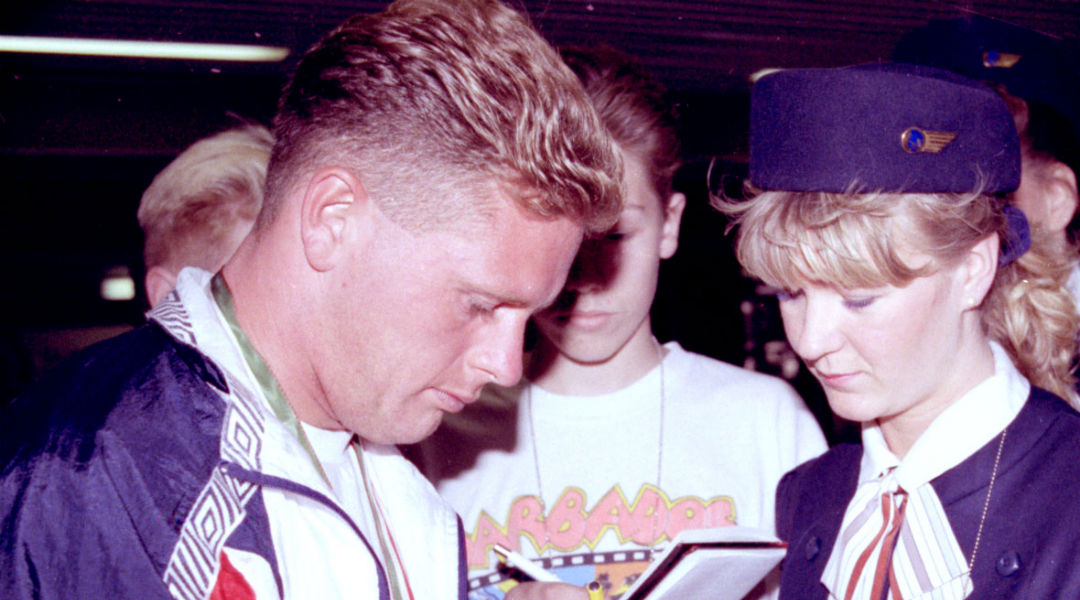
As the Express’s man in Mexico City in 1986, Curry reported that England’s 2-1 defeat to Argentina (at the hands of a “GENIUS AND A CHEAT”) meant they were also heading home with their heads held high.
“England’s World Cup hopes and dreams were shattered last night by the genius – but also the cheating – of Argentina’s Diego Maradona,” wrote Curry. “But don’t cry for England today, for they fought heroically in the last 20 minutes to retrieve a situation brought about by a goal that should not have stood.”
The press were slightly less forgiving in 1982, bemoaning the fact that Trevor Brooking and Kevin Keegan were not given the opportunity on their returns from injury to run Spain ragged in their second group stage decider.
“The football world waited in vain last night for the flourish which would show that England, for 12 years the sick man of Europe, was fully back to health,” wrote David Miller in the Express.
Total disbelief
Those had been 12 long years without English involvement at World Cup finals, but the press reaction had been a similar story after a premature return in 1970, with a collective sharpening of pens (and knives) after Sir Alf Ramsey’s miscalculations against West Germany in Leon.
Meeting Ramsey in the hours after England’s defeat, the Daily Mirror’s Ken Jones described the mood of despair: “Ramsey, his face burned brown by the unremitting sun, his eyes heavy with disappointment, still wore a mask of total disbelief as he recalled the bitter moments which destroyed his team a few hours earlier,” he wrote.
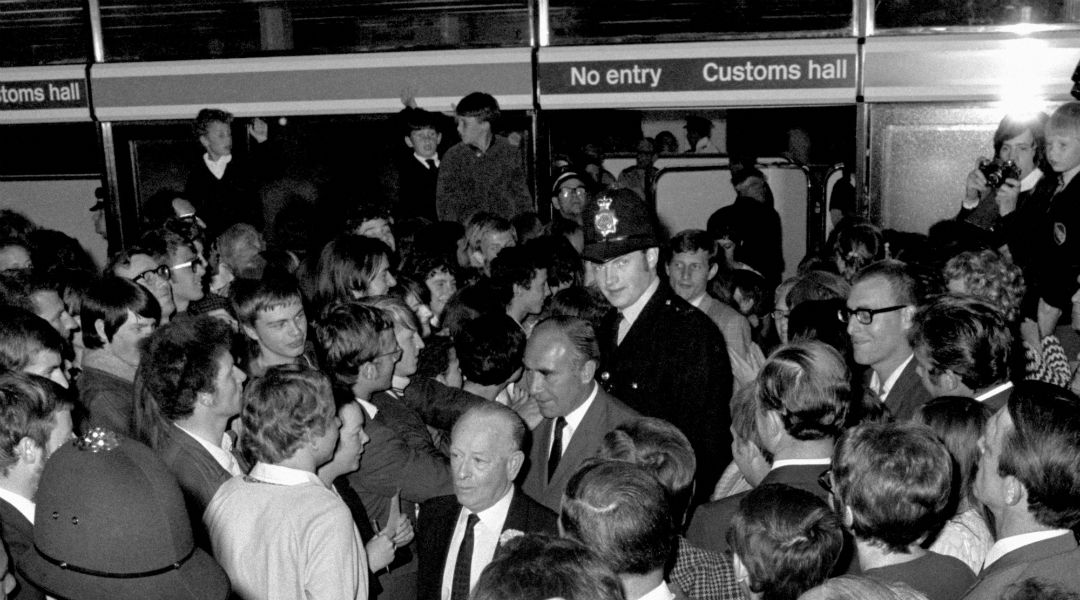
That would prove the beginning of the end for Sir Alf and would, in many ways, signal the start of a run of post-World Cup inquests that shows no sign of either ending or delivering results.
The despair on Ramsey’s face would echo the despair in Waddle’s voice some 40 years later – but as a fresh round of soul-searching begins, the FA’s 48-year-old victory bunting is still tucked safely away. Waddle and the rest of the nation won't be holding out any hope of it being unfurled in the Russian capital in 2018.
